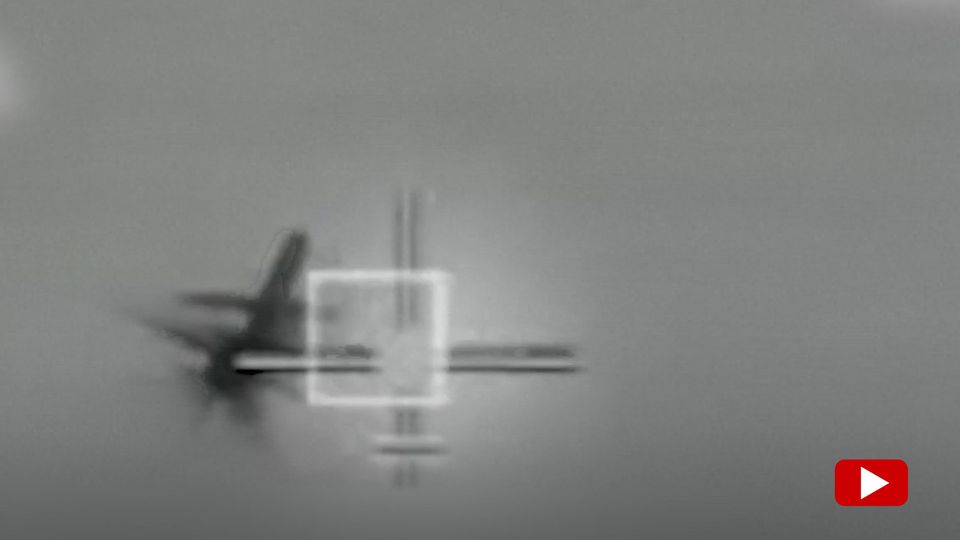Conflict in the Middle East
Israel weighs reaction after Iran attack – EU discusses new sanctions against Tehran
The Israeli security cabinet meets, here is a photo from April 14th. Israeli Prime Minister Benjamin Netanyahu (M) emphasized that the Iranian attack must be followed by a clever response.
© —/Israel’s Government Press Office/XinHua / DPA
Israel does not want to leave the major Iranian attack unanswered. No decision has yet been made on an answer. Meanwhile, Iran is also threatened with consequences from other quarters. And China is joining the conflict.
Israel wants to punish Iran for its drone and missile attacks without losing international support. Israeli Chief of Staff Herzi Halevi said on Monday that further steps were being considered. An attack with so many rockets on Israel will be followed by a reaction. At the same time, Halevi added: “The attack by Iran has created new opportunities for cooperation in the Middle East. We are assessing the situation and are prepared at the highest level.”
According to a report by the Israeli radio station Kan, Israeli Prime Minister Benjamin Netanyahu emphasized at a meeting with ministers from his Likud party that the Iranian attack must be followed by a smart response. Iran should have to wait nervously to see when the counter reaction will occur, just as Israel did before the attack late Saturday evening.
The Israeli war cabinet met again on Monday. There was initially no official statement on the results of the meeting. The television channel Channel 12 reported without citing sources that various scenarios had been discussed as to how to respond to the major Iranian attack. Israel’s goal is therefore to harm Iran without triggering an all-out war.
USA does not want to participate in Israel’s reaction
The US government did not want to comment publicly on a possible retaliation by Israel. “We will let the Israelis have the floor,” National Security Council communications director John Kirby said Monday. The USA is not involved in the decision-making process.
Israel’s military had received support from the USA, Great Britain, France and Jordan in successfully repelling the Iranian attack. After the attack, the US also reaffirmed its “iron-clad commitment” to Israel’s security. However, Washington does not want to take part in a possible retaliation and, like other allies, is pushing for de-escalation. Asked whether the United States was concerned that an Israeli retaliation could endanger American forces in the region and therefore did not want to participate, Pentagon spokesman Pat Ryder said on Monday that it was up to Israel to decide whether to do so will respond to the attack or not.
The Iranian attack showed how important Israel’s relations with the USA and other partners are, the Wall Street Journal wrote on Monday. Analysts say this is likely to be an important consideration as Israel – previously increasingly isolated because of its crackdown in the Gaza war – weighs its next move. The war goals in the fight against Hamas, which is allied with Iran, in the Gaza Strip are also likely to be part of Israel’s calculations, including the planned offensive against the city of Rafah, which is overcrowded with refugees, in the south of the sealed-off coastal area.
Crisis region
Who actually pursues what goal in the Middle East?
EU is considering new sanctions against Iran
Meanwhile, possible new sanctions against Iran are being considered in the EU. As several diplomats said on Monday evening after discussions between representatives of the member states in Brussels, the issue is likely to come up on the table this Tuesday during a video link between the foreign ministers. New punitive measures could therefore be imposed via a sanctions regime that was set up after Iran began supporting Russia’s war of aggression against Ukraine through drone deliveries. So far, among other things, it has banned the export of components to Iran that are used for the construction and production of drones. In addition, people and organizations are also affected by punitive measures.
According to diplomats, however, the risk of escalation could speak against new, tough sanctions. EU foreign policy chief Josep Borrell wants to continue trying to persuade Iran to again comply with an agreement to restrict its nuclear program. It is intended to prevent Iran from building a nuclear bomb. The video conference on Tuesday, which was called because of the Iranian attack on Israel, will fundamentally discuss how the European Union can contribute to de-escalation in the region.
Beijing calls Tehran and Riyadh
According to Chinese state media, China’s Foreign Minister Wang Yi spoke on the phone with his Iranian counterpart Hossein Amir-Abdollahian. The Iranian foreign minister said that his country was prepared to exercise restraint, the Chinese state news agency Xinhua reported on Tuesday. Iran has no intention of escalating tensions. The current situation in the region is very delicate.
As Xinhua reported, Amir-Abdollahian outlined Tehran’s position on the deadly attack on an Iranian consular building in the Syrian capital Damascus earlier this month, which was attributed to Israel. Amir-Abdollahian told Wang that the United Nations Security Council had not given a necessary response to the attack, the news agency said. Iran has the right to self-defense in response to violations of its sovereignty.

Military videos show Iranian drones shot down from the pilot’s perspective
00:52 minutes
Wang said China strongly condemns and strongly opposes the attack on the Iranian consular building, according to Xinhua. The People’s Republic considers it a serious violation of international law and “unacceptable”.
The Foreign Ministry in Tehran said that Amir-Abdollahian had informed Wang about Iran’s “legitimate” measures in response to the attack in Damascus and that the White House had “warned” that further attacks on Iran’s interests or security would require a “determined decision “immediate and comprehensive” response.
China’s Foreign Minister Wang also held talks with his Saudi counterpart on Monday, according to Xinhua. The two foreign ministers agreed to work together to prevent further escalation in the Middle East.

